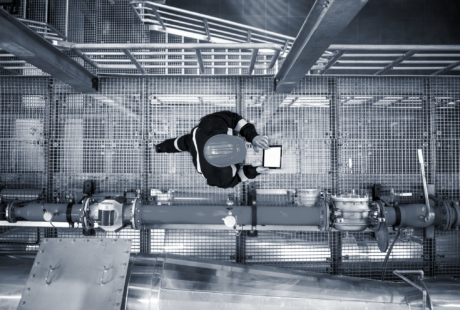Related:
Succession Planning in Engineering
“America is back” exclaims a White House document on climate.1 In fact, President Biden’s re-commitment to the Paris Accord is just the latest indicator that the move toward green energy is set to accelerate now and for the foreseeable future. Central to this effort will be mechanical engineers, who will utilize their skill sets to ensure that a steady wave of green innovations are achievable, efficient, and affordable.
Green Energy Revolution
“The world’s largest market in history is opening before our own eyes,” proclaimed John Kerry, the first US Special Presidential Envoy for Climate. He was addressing a virtual audience at President Biden’s Leaders Summit on Climate speaking of the economic opportunity inherent in the clean energy shift. “No one is being asked for a sacrifice, this is an opportunity.”2
As is the case with any wide-scale change, there will certainly be economic winners and losers. What seems certain, however, is that there is no turning back. Political, social, and economic pressure will punish laggards while massive spending will boost R&D in renewable energy initiatives. It’s a shift that involves both opportunity and challenge.
A marked uptick in the usage of alternate energy sources such as solar and wind power will require new energy storage solutions. Electric vehicles will be increasingly commonplace, prompting the mining industry to respond to the need for lithium, cobalt, copper, and other materials used in batteries. Carbon capture will continue to grow in importance and scale, requiring continued investment and innovation.
Mechanical Engineers in the Renewable Energy Sector
“As the renewable energy market matures, this is likely to be a key area of opportunity for mechanical engineers,” says Michigan State University, who offers a Master of Science in Mechanical Engineering degree, adding that “it is already one with a notable skills gap.” Case in point: they note that 66% of employers in the US wind energy industry have experienced ‘some or great difficulty’ finding qualified electrical or mechanical engineering talent.3
Mechanical engineers will be poised not only to earn a good salary, but to effect change in a real and substantial way. Working with wind turbine design, solar and geothermal power, hydropower infrastructure, cooling system optimization, and energy storage will allow mechanical engineers to make breakthrough innovations feasible. Their knowledge of thermodynamics, fluid mechanics, heat transfer, mechanical and industrial systems, and new sources of clean energy will continue to be in demand as more and more change comes to the energy industry.
The best mechanical engineers will not only be comprehensive, but collaborative as they partner with other disciplines led by electrical, chemical, and systems engineers. Technology optimization, system integration, and research will put their skills to the test as engineers are called upon to consult on projects as well as educate businesspeople and policy makers.
“It is a market defined by growth and change,” says MSU, “but there is little doubt that mechanical engineers will continue to play an essential role in making the technology reliable, cost effective and efficient.”3
Renewable Energy Storage Solutions
“What about when the wind’s not blowing and the sun’s not shining?”
This retort, often uttered by skeptics of wind and solar energy, may be simplistic in its dismissiveness but it is not totally without merit. Storage of renewable energy is just one of the industry challenges that mechanical engineers are tackling as we speak.
“The only real challenge with establishing 100 percent renewable electricity supply is that we can’t save the electricity generated during windy and sunny weather for use at a later time,” says Henrik Stiesdal, founder of the climate technology company Stiesdal Storage Technologies. “Demand and production do not follow the same pattern. There are not yet commercial solutions to this problem, but we hope to be able to deliver this with our GridScale energy storage system.”1
The project, being planned in Denmark, will store electrical energy generated from solar and wind as heat in stones. The complex process will involve heated pea-sized pieces of basalt, stored in insulated steel tanks, releasing their stored heat as electrical energy when demand dictates. It is hoped that the practice will one day provide a cheap and efficient alternative to storing power in lithium-based batteries.1
Engineering the Future
The Gridscale project, and countless other innovations like it, will require contributions from intelligent and inspired individuals, not the least of which are mechanical engineers.
“This is our generation’s moonshot,” US Secretary of Energy Jennifer Granholm told the Climate Summit. As countries worldwide work toward a sustainable future, enthusiastic minds may be the most valuable resource yet to be harnessed.





1 thought on “Mechanical Engineers and the Green Energy Revolution”
Comments are closed.